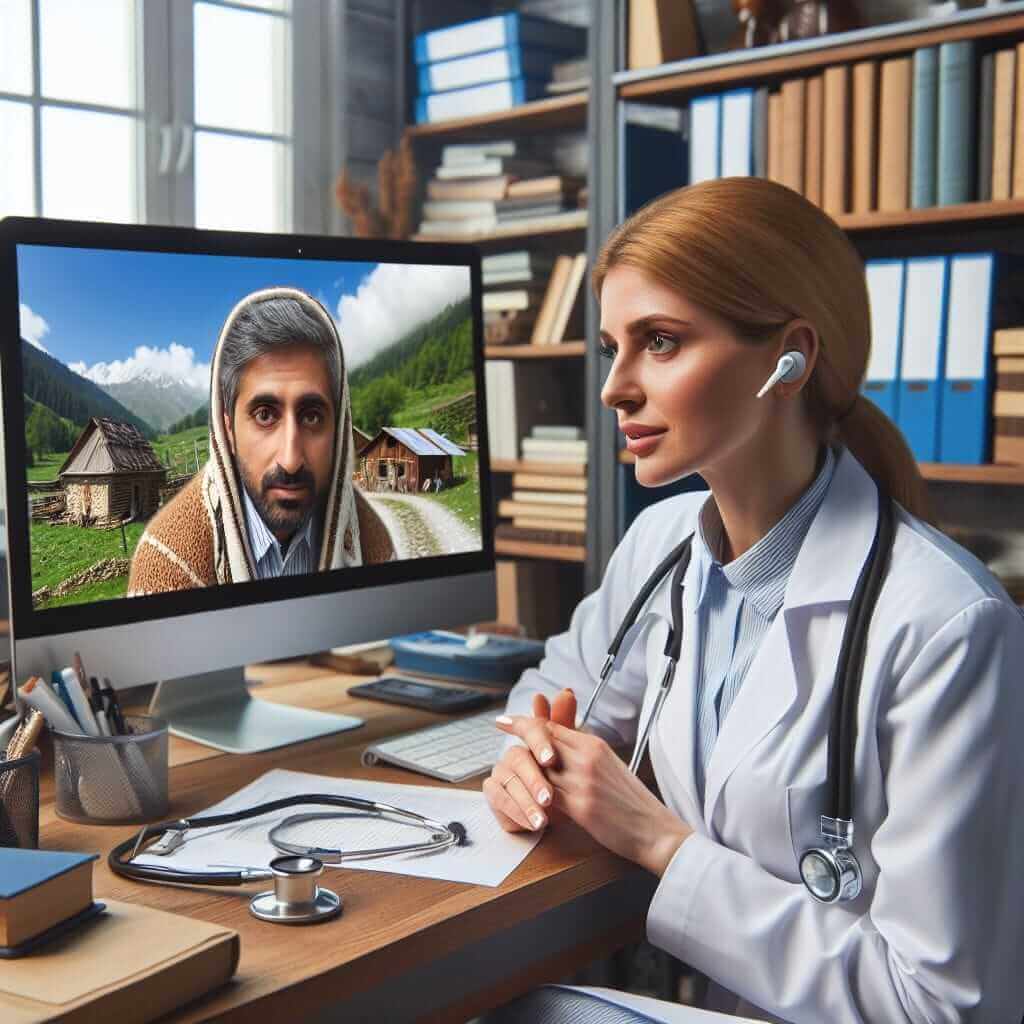Global health initiatives are crucial in improving and saving lives worldwide, and the influence of technology on these initiatives cannot be overstated. In this article, we’ll explore how technology is transforming the landscape of global health. We’ll delve into a comprehensive reading exercise designed to help you hone your skills for the IELTS Reading section.
Introduction
The IELTS Reading section tests a candidate’s ability to understand, interpret, and analyze written texts. Increasingly, global health initiatives and their technological impacts have emerged as pivotal topics due to their relevance and societal importance.
Historically, technology’s role in healthcare has been a recurring theme, making it a likely candidate for future IELTS Reading passages. Topics such as telemedicine, AI in diagnostics, and mobile health applications are increasingly common and pertinent.
Full Reading Passage
Technology’s Role in Global Health Initiatives
Advances in technology are revolutionizing global health initiatives, providing innovative solutions to longstanding challenges. Telemedicine, artificial intelligence (AI), and mobile health (mHealth) applications are at the forefront of this transformation. These technologies are enhancing the delivery and efficiency of healthcare services, particularly in low-resource settings.
Telemedicine enables healthcare providers to reach remote areas, offering consultations and treatments via digital platforms. This technological advancement reduces the geographic barriers that have historically limited access to medical care. Moreover, AI in diagnostics facilitates early detection of diseases, significantly improving patient outcomes. AI algorithms can analyze vast amounts of data quickly and accurately, identifying patterns that may be missed by human doctors.

Mobile health applications, or mHealth, are another critical component. These applications empower individuals by providing them with tools to monitor their health, access medical information, and receive timely reminders for medication adherence. mHealth applications are particularly impactful in regions where healthcare infrastructure is weak or non-existent.
Furthermore, technology is playing a vital role in global health surveillance. Digital tools are used to track disease outbreaks and monitor public health trends in real-time. This capability is essential for prompt responses to health crises, such as pandemics, thereby preventing the spread of infectious diseases.
However, the integration of technology in global health initiatives is not without challenges. Issues such as data privacy, technological infrastructure, and digital literacy must be addressed to ensure equitable access to these advancements. Despite these challenges, the potential of technology to enhance global health is immense, offering pathways to improved health outcomes worldwide.
Sample Questions
Multiple Choice
-
According to the passage, which technology is enhancing the efficiency of healthcare services in low-resource settings?
A. Genetic Engineering
B. Telemedicine
C. Virtual Reality
D. Blockchain -
What is one primary benefit of AI in diagnostics mentioned in the text?
A. Reducing healthcare costs
B. Early detection of diseases
C. Providing entertainment for patients
D. Automating surgical procedures
True/False/Not Given
-
Mobile health applications are less effective in well-developed healthcare systems.
- True
- False
- Not Given
-
AI algorithms outperform human doctors in all medical diagnoses.
- True
- False
- Not Given
Matching Information
Match the technology to its specific role as mentioned in the passage:
- Telemedicine
- AI in diagnostics
- mHealth applications
- Global health surveillance
a. Tracks disease outbreaks in real-time
b. Provides digital consultations in remote areas
c. Monitors individual health and medication adherence
d. Analyzes large datasets for early disease detection
Sentence Completion
- Telemedicine reduces ___ that historically limited access to medical care.
- Mobile health applications empower individuals by providing tools to ___.
Answer Key
Multiple Choice
- B: Telemedicine
- B: Early detection of diseases
True/False/Not Given
- Not Given
- False
Matching Information
- Telemedicine: b. Provides digital consultations in remote areas
- AI in diagnostics: d. Analyzes large datasets for early disease detection
- mHealth applications: c. Monitors individual health and medication adherence
- Global health surveillance: a. Tracks disease outbreaks in real-time
Sentence Completion
- geographic barriers
- monitor their health
Common Mistakes and Tips
Common Mistakes
- Misinterpreting the Question Type: Candidates often confuse ‘True/False/Not Given’ with ‘Yes/No/Not Given.’ Ensure you understand the specific requirements of each question type.
- Overlooking Key Details: Small details in the text can significantly impact the answer. Read carefully and pay close attention to the wording of both the passage and questions.
Tips
- Skimming and Scanning: Practice skimming for general understanding and scanning for specific information. Key strategies include identifying keywords and understanding the context in which they appear.
- Paraphrasing: Many questions require you to identify the same ideas paraphrased in different words. Enhancing your ability to recognize synonyms and rephrased concepts is crucial.
Vocabulary Development
Key Vocabulary
- Telemedicine (n): /ˈtɛlɪˌmɛdɪsɪn/ – The remote diagnosis and treatment of patients by means of telecommunications technology.
- Artificial Intelligence (AI) (n): /ˌɑːrtɪˈfɪʃəl ˌɪntɛˈlɪdʒəns/ – The simulation of human intelligence in computers.
- mHealth (n): /ɛm hɛlθ/ – Mobile health, referring to medical and public health practice supported by mobile devices.
Advanced Grammar Structure
-
Relative Clauses:
- Example: “The data, which can be overwhelming for human doctors, is processed efficiently by AI algorithms.”
- Structure: ‘The data, which [relative clause], [main clause].’
-
Passive Voice:
- Example: “Telemedicine is being used to reach remote areas.”
- Structure: ‘[Subject] is/was [past participle] by [agent].’
Recommendation for IELTS Reading Practice
To excel in the Reading section, consider the following strategies:
- Practice Consistently: Regular reading practice enhances comprehension skills and increases familiarity with test formats.
- Diversify Reading Materials: Engage with various sources, including academic journals, news articles, and technology blogs, to build a robust vocabulary and understanding of diverse topics.
- Technical Vocabulary: Focus on learning technical and specialized vocabulary relevant to health and technology, as such topics are common in IELTS passages.
Addressing these areas effectively will bolster your IELTS Reading proficiency and help you achieve a higher band score.